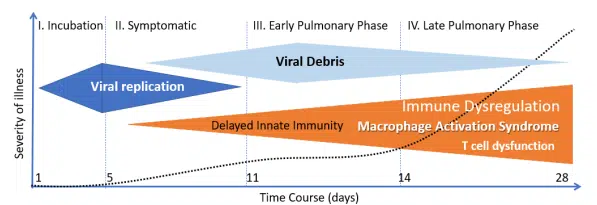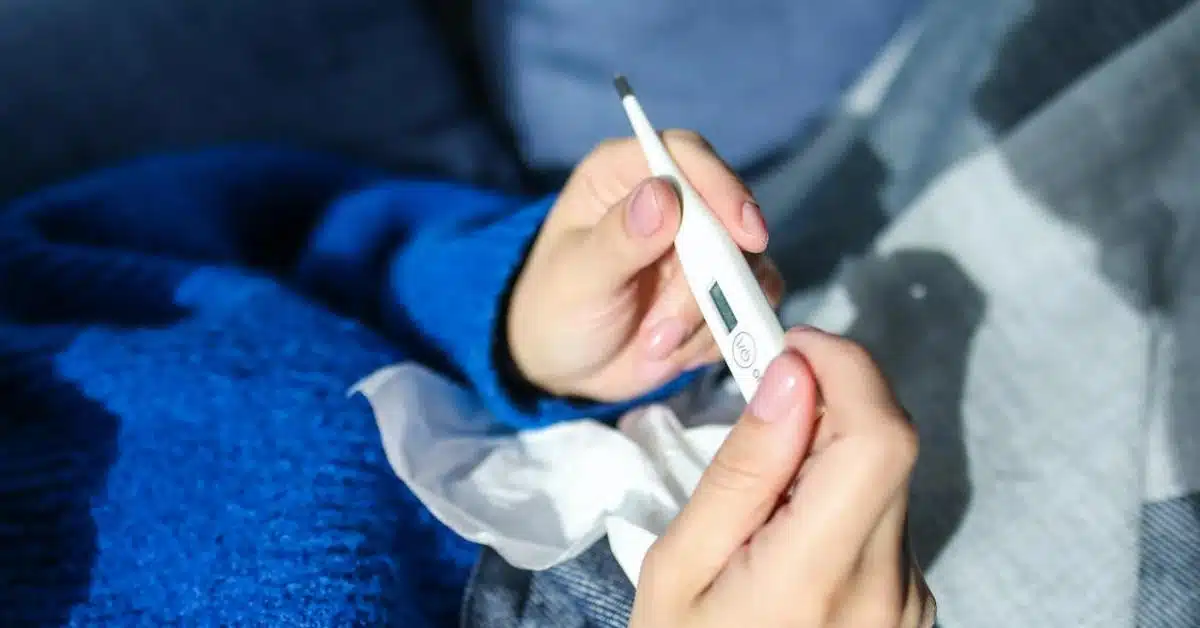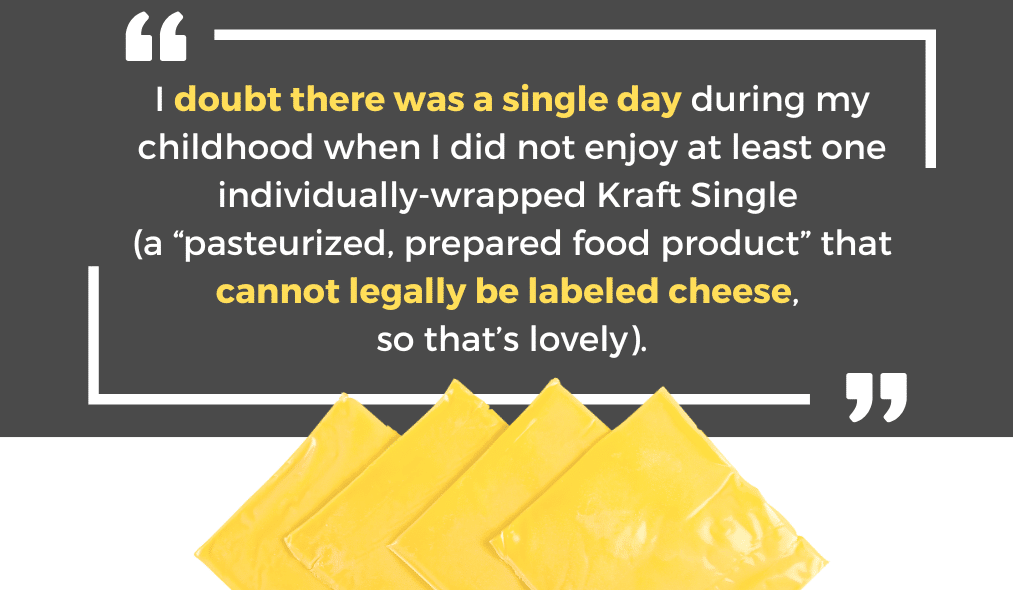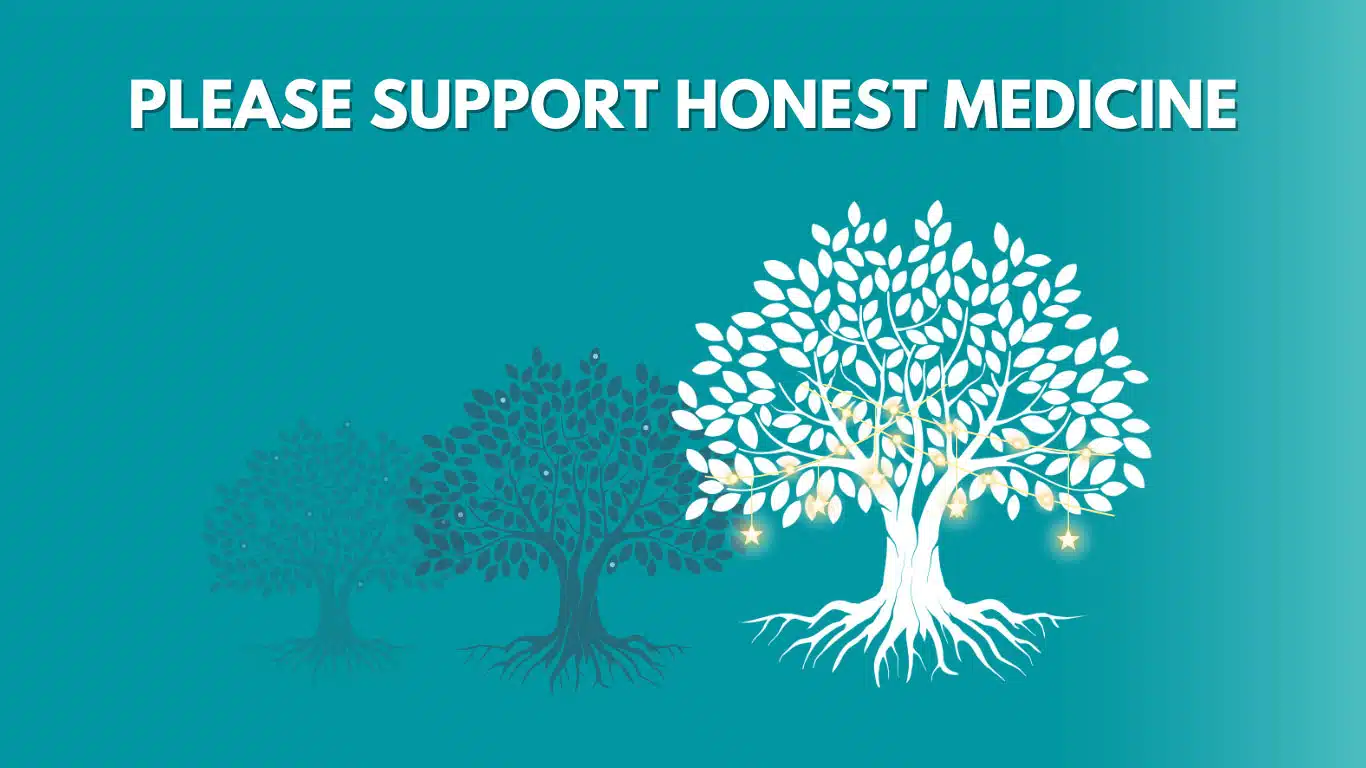
Are you sick with COVID symptoms right now?
By now, most of us have either had a COVID-19 infection or at least know someone who has. Despite grappling with this virus for years, the simple question, “How long does COVID-19 last?”, remains a point of confusion.
Here’s the easy answer: Most people with COVID-19 will experience mild symptoms and fully recover within a couple of weeks.
But for many patients, the above answer only raises more questions – especially if you have been sick for longer than two weeks. Let’s get to the bottom of it once and for all!
In this post, we’ll tell you how long COVID-19 symptoms last depending on case type & symptom severity.
Established in March 2020 by a team of leading critical care experts, the Front Line COVID-19 Critical Care Alliance (FLCCC) is devoted to both the prevention and treatment of COVID-19 and to empowering patients in managing their health.
Our mission is to improve health outcomes and save lives by regularly refining our methods based on the latest research, data, and direct clinical experiences. Learn more about FLCCC.
How long does COVID last in your body?
Want to know how long COVID symptoms usually last? Let’s first look at the typical stages of COVID-19. Here’s a graph developed by our frontline clinicians:

From this, we can see there are generally four potential stages of COVID-19:
- Exposure & Incubation: The incubation period for COVID-19 usually lasts up to 5 days. During this phase, a person may not yet display symptoms, but the virus is incubating.
🕒 Typically around 4 to 5 days.
- Symptomatic: Typically starts 4 to 5 days after exposure. Symptoms might include fever, cough, fatigue, sore throat, loss of taste or smell, and more. Some people never develop symptoms.
🕒 Typically resolved in 1 to 2 weeks.
- Early Pulmonary Phase: This stage can involve lower respiratory disease and pneumonia. Some individuals may require hospitalization. Depending on the patient, this phase could last up to a month.
🕒 Usually over in 2 weeks.
- Late Pulmonary Phase: Though increasingly rare, this phase begins to develop 1 to 2 weeks after mild symptoms begin. Symptoms can escalate to severe pneumonia, ARDS, sepsis, and multi-organ failure.
🕒 Can potentially last up to 6 weeks.
- Long COVID: After the acute phase, some patients continue to experience symptoms or develop new ones. Common long-term symptoms include fatigue, “brain fog”, joint pain, exercise intolerance, and chest pain.
🕒 Potentially lasting weeks, months, and years.
How severe are your COVID symptoms?
Symptom severity is often a good indicator of how long your symptoms will last:
- Mild Cases (1 – 2 weeks)
- Moderate to Severe Cases (Up to 6 weeks)
- Long COVID (Potentially months or longer)
1. Mild COVID Symptoms
Typical duration: 1 – 2 weeks
The majority of people with COVID-19 experience mild symptoms, similar to a common cold or flu (fever, cough, fatigue, etc.). So how long does mild COVID last?
Generally, symptoms of COVID-19 last for a few days to a couple of weeks. Most recover fully without the need for hospitalization within 14 days.
Symptoms tend to include:
- Fever
- Cough
- Fatigue
- Sore throat
- Runny nose
- Muscle aches
- Allergy symptoms
- Loss of taste and/or smell
Treatment options: For all COVID patients, especially if you are in a high-risk group (older adults, underlying medical conditions), early COVID treatment is the most important factor in managing this disease. Even low-risk people with mild symptoms can benefit from early treatment given soon after developing symptoms.
Treatment may include a combination of therapies and supplements. Some are intended to control the virus, others are meant to boost the immune system. Although you may be feeling sick right now, remember: prevention is always the best medicine – that’s why we have created a tried and true COVID prevention strategy as well.
If you’ve got travel coming up, testing restrictions, forced quarantines, or any other roadblocks that result from a COVID case, prevention can help you avoid all of that entirely! If you are sick right now and need your symptoms gone, check out our early treatment guide below.
👉 Learn more: I-CARE – A Guide to Early Treatment of COVID-19
2. Moderate to Severe COVID Symptoms
Typical duration: 2 weeks, or 3 – 6 weeks if hospitalization needed
Some individuals, especially those in higher-risk groups with underlying health conditions, can develop more severe respiratory symptoms like shortness of breath, persistent chest pain, or even pneumonia. Though increasingly rare as COVID variants become milder, these symptoms can last several weeks, and hospitalization might be required. Some severe cases can lead to acute respiratory distress syndrome (ARDS), septic shock, or multi-organ failure.
Severe COVID-19 symptoms could include:
- Difficulty breathing or shortness of breath
- Persistent chest pain or pressure
- Confusion or inability to stay awake
- High fever that doesn’t improve with the use of fever-reducing medications
- Bluish lips or face
- Decreased oxygen saturation (often determined by a pulse oximeter)
- Persistent cough (that becomes more severe over time)
- Increased heart rate
- Persistent dizziness or lightheadedness
- Diarrhea or persistent abdominal pain
- Nausea or vomiting that prevents the ability to eat and drink
- Loss of mobility or decreased responsiveness
For patients with any of the above symptoms, it’s important to monitor the situation and seek emergency care if needed.
So, how long does it take to recover from COVID-19 if you have severe symptoms? If your symptoms are worsening or if you have not improved within two weeks of onset, it may be time to consult your healthcare provider again.
The goal should be to intervene before hospitalization is needed. And if you do land in the hospital with a severe respiratory issue, you could be stuck there for up to 6 weeks.
Treatment options: For patients with a moderate or severe case, treatment as soon as possible after symptoms start is essential. Treatment at early stages leads to better outcomes and reduces the risk of hospitalization.
So if you’ve tested positive for COVID-19, don’t delay, especially when you are hit with a bad case. For more information on hospital treatment for severe COVID-19 cases, check the link below.
👉 Learn more: MATH+ Hospital Treatment for COVID-19
3. Long COVID Symptoms
Typical Duration: weeks, months, or years (left untreated)
Long COVID, also referred to as ‘Long Haul COVID Syndrome (LHCS)’ or ‘Post-acute sequelae of COVID-19 (PASC)’, is a prolonged illness that may persist for months after an acute infection. It seems to afflict a range of individuals, even those who had mild-to-moderate cases.
Symptoms vary, but tend to include the following clusters:
- Respiratory: shortness of breath, congestion, persistent cough, etc.
- Neurological/psychiatric: brain fog, malaise, tiredness, headaches, migraines, depression, inability to focus or concentrate, altered cognition, insomnia, vertigo, panic attacks, tinnitus, anosmia, phantom smells, etc.
- Musculoskeletal: myalgias, fatigue, weakness, joint pains, inability to exercise, post-exertional malaise, inability to perform normal activities of daily life
- Cardiovascular: Palpitations, arrhythmias, Raynaud-like syndrome, hypotension, and tachycardia on exertion
- Autonomic: Postural tachycardia syndrome (POTs), abnormal sweating
- Gastrointestinal disturbance: anorexia, diarrhea, bloating, vomiting, nausea, etc.
- Dermatologic: itching, rashes, dermatographia
- Mucus membranes: running nose, sneezing, burning and itchy eyes
If you’ve had symptoms that won’t go away, the question, “How long does it take to recover from COVID”, might be at the forefront of your mind! If you suspect you’re suffering from Long COVID, talk to your healthcare provider & be aware that there are treatment options.
Treatment options: Patients suffering from long COVID should be cared for by clinicians familiar with handling this challenging condition. Therapeutic strategies should be tailored based on the specific cluster of clinical manifestations and indicators.
👉 Learn more: I-RECOVER – Long COVID Treatment
Wrapping up
How long does COVID usually last? As we learned, it depends on your symptoms and the severity of them. All things being equal, a healthy person could see symptoms come and go within one or two weeks. For patients exceeding two weeks of acute illness, those with certain risk factors and/or severe symptoms should exercise more caution and seek emergency care more readily.
We hope you’ve found this resource valuable! For more from FLCCC, check out our blog, our health guides, and our weekly webinar/podcast featuring some of the most respected healthcare professionals on planet Earth.







